Heir Jordan: The players we ranked 10-6 from the last 25 years
There have been 25 seasons since Michael Jordan retired from the Chicago Bulls after their second three-peat in the spring of 1998. theScore basketball writers Joseph Casciaro and Joe Wolfond are using that milestone to rank and discuss the top 25 players in the post-Jordan era. (Wizards-era Jordan did not make the cut.)
As a reminder, the accomplishments listed for each player only cover the 25-year period in question. For example, Kevin Garnett is a 13-time All-Star for the purposes of this exercise, not a 15-time All-Star.
Monday: Introductory essay and players 25-21
Tuesday: Players 20-16
Wednesday: Players 15-11
10. Nikola Jokic
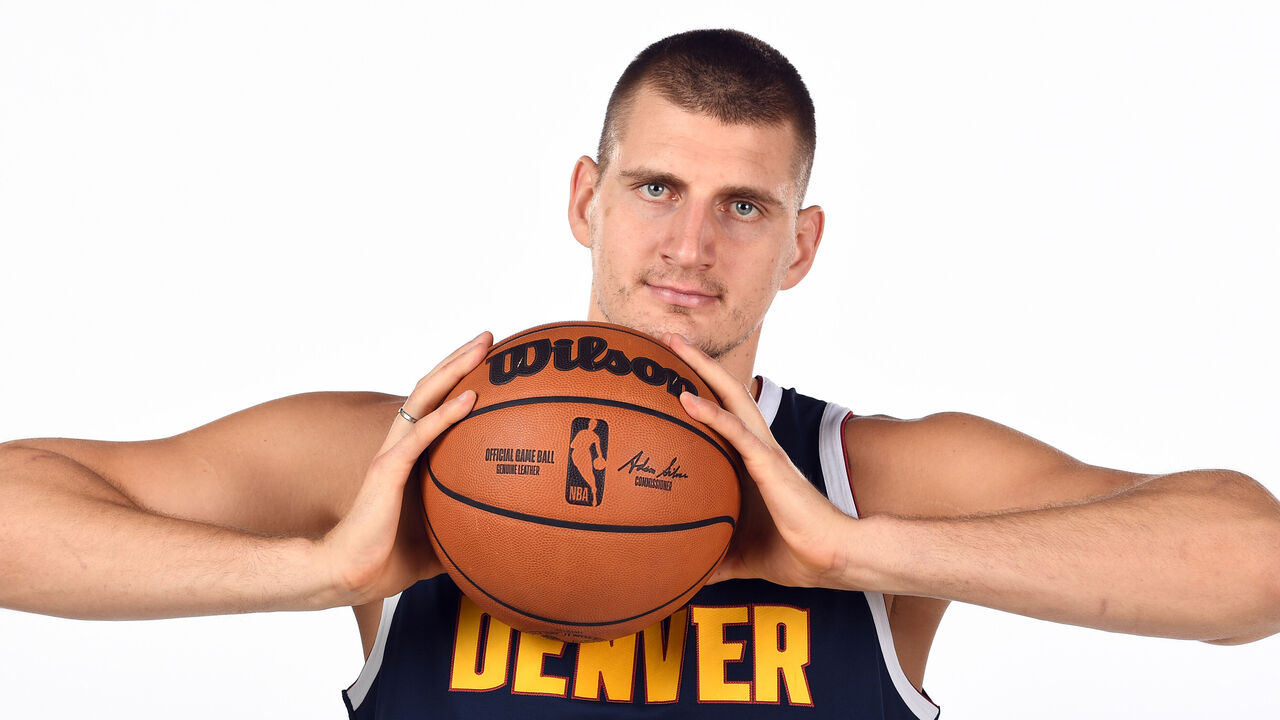
Signature performance: 2023 playoffs
It's tough to single out one moment or game that crystallized Jokic's 2023 postseason run because he was uniformly incredible from start to finish. You could point to his 53-point, 11-assist outing in the second round against Phoenix, or his 34-point, 21-rebound, 14-assist masterpiece that set the tone in Game 1 of the West finals against the Lakers. Or, you could point to the championship clincher against Miami in which he scored 28 of the Nuggets' 94 points (on 18 shooting possessions!) while playing one of the best defensive games of his career. None felt lesser or greater than any other.
Maybe that's because Denver faced so little adversity along the way that Jokic wasn't able to author an individual feat that swung the title his team's way. Instead, it felt like the Nuggets always had it. And it felt that way because of Jokic, who averaged 30 points, 13.5 rebounds, and 9.5 assists on 55/46/80 shooting en route to hoisting the Larry O'Brien Trophy.
Why he's here: He's a problem without an answer. A one-man-coverage destroyer. An elite offense unto himself. A unicorn among unicorns. Simultaneously his generation's best passer and post scorer. A perfect amalgam of brawn and brains, ferocity and finesse. An unguardable point center who elevates everyone he plays with. Jokic has already had a handful of the most efficient regular seasons we've seen - on an individual and team level - and he's somehow been even better in the playoffs. He'll have a strong case as the best offensive player in NBA history when all's said and done.
There's just no good way to defend him. What are you supposed to do with a guy who can cook anybody in single coverage but also pick apart double teams with seeing-eye passes that bypass multiple links in the defensive rotation? It'd be hard enough to deal with his combination of strength, footwork, balance, anticipation, and feathery touch without accounting for his otherworldly playmaking. His hands are so sticky, and his vision so clear, that he can dominate entire games while barely ever bringing the ball below his head.
Jokic has some obvious limitations as a defender; he's vulnerable in space and ineffectual (by center standards) as a rim-protector. Those limitations have, at times, rendered the Nuggets' defense fairly one-dimensional and put a cap on how good the team could be. But his sound positioning, disruptive hands, strength in the post, and voracious rebounding have helped him hover around average at that end. Given his offensive exploits, that's been good enough to make him arguably the best player of the 2020s so far, especially now that he's proven beyond a doubt that his defense can hold up to playoff scrutiny. - Joe Wolfond
9. Dwyane Wade
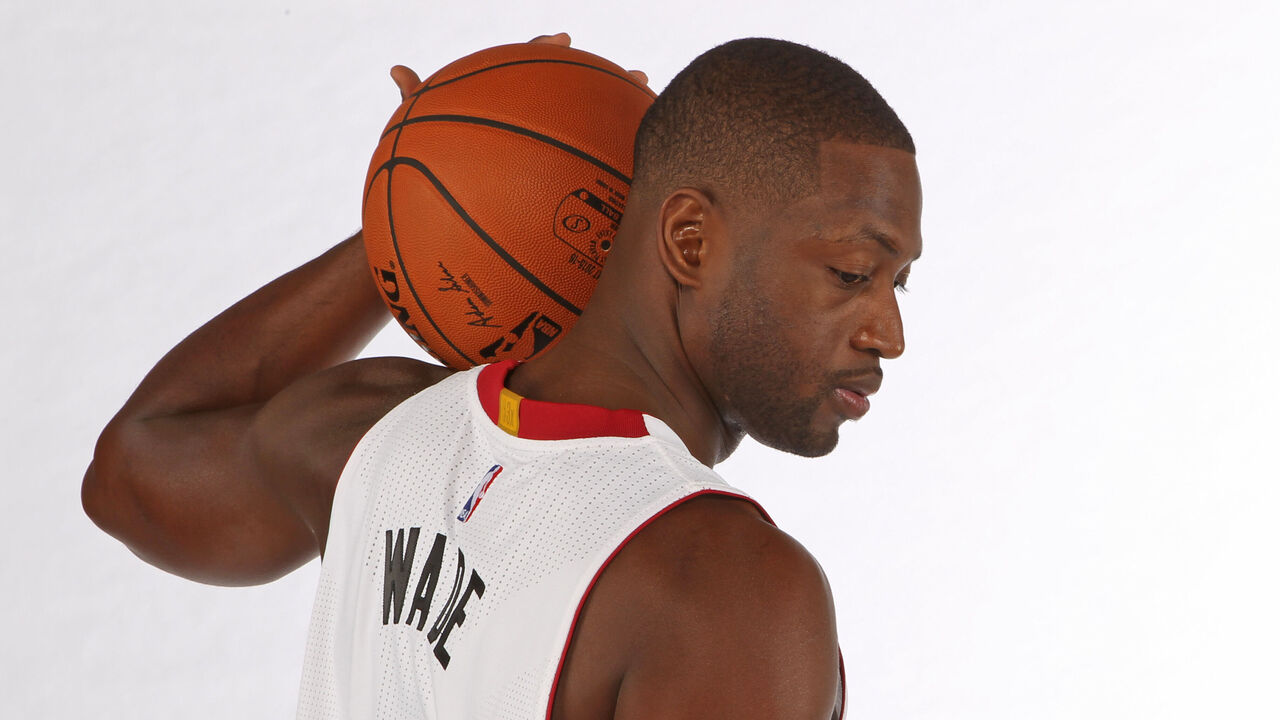
Signature performance: 2006 Finals
Simply put, the Heat had no business winning the 2006 title over a vastly superior Mavericks team. Miami's second-leading scorer in the series was Antoine Walker, who averaged 13.8 points on 46% true shooting. Post-prime Shaquille O'Neal was worn down and sluggish, and he shot 29% from the free-throw line. The much deeper Mavs won Games 1 and 2 by double digits and led by 13 midway through the fourth quarter of Game 3.
From that point forward, Wade carried the team on his back with one of the most heroic individual efforts in NBA Finals history. He engineered a Game 3 comeback by scoring 12 of his 42 points in the final six minutes, then he averaged 38.3 points over the ensuing three contests to complete the reverse sweep and win the first championship in Heat history.
Why he's here: Wade loses out to Bryant on longevity, but you can make a case that he was the best shooting guard of his era at his apex. He was lightning-fast with the ball - they didn't call him "Flash" for nothing - an explosive finisher, a slick passer (especially when it came to throwing lobs), a beguiling mid-post operator, and a ridiculously good slasher who lived at the rim and the free-throw line.
Wade was never much of a long-range shooter, but it didn't matter because he was so adept at everything else. It's incredibly hard to average 20-plus points on better-than-league-average efficiency while making fewer than one 3-pointer a game as a guard in the 21st century, but Wade did that nine times. All the while, he made opponents' lives miserable at the other end of the floor. He was an on-ball hellhound, a passing-lane menace, and unquestionably the best shot-blocking guard of all time.
On top of the aforementioned 2006 Finals, his legendary 2008-09 season - 30.2 points, five rebounds, 7.5 assists, 2.2 steals, and 1.3 blocks - is among the great achievements for a guard in the post-MJ era. It's a shame his prime only lasted about eight years because when he was good, not many were better. - Wolfond
8. Kawhi Leonard
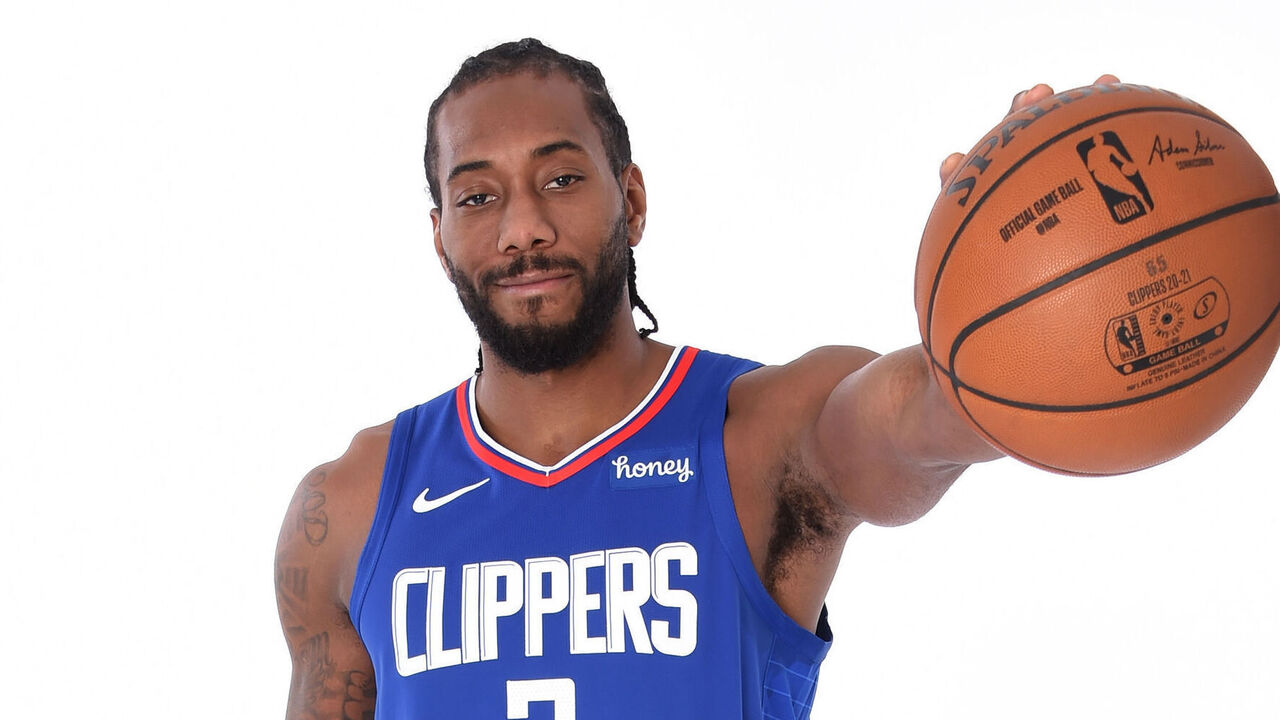
Signature performance: 2019 playoffs
A Finals MVP run in 2014 and his individual postseason efforts for San Antonio in 2017 both deserve merit, but Leonard blew his own lofty standards out of the water over a breathtaking two-month playoff run in Toronto.
His second-round heroics against a stacked 76ers team included multiple 40-point outings, a 39-point, 14-rebound performance, and the first series-winning buzzer-beater in a winner-take-all game since 1989. Leonard followed that up by outdueling reigning MVP Giannis Antetokounmpo in the conference finals and averaging roughly 29 points and 10 rebounds in a six-game NBA Finals victory over the defending champion Warriors. Leonard's 732 points scored in the 2019 postseason ranks third for a single playoff run, behind only Michael Jordan in 1992 and LeBron James in 2018.
Why he's here: Leonard's journey has seen him fill every role required of a championship building block. He entered the league as a 3-and-D role player and developed well enough to eventually win a Finals MVP award as a 22-year-old tasked with guarding James. In taking on the mantle of San Antonio's franchise player, Leonard won two straight Defensive Player of the Year awards while emerging as a scorer capable of 20-plus points per game. In Toronto, he was the unbothered franchise savior, guiding the Raptors to the franchise's lone championship with an individual playoff run for the ages. His Clippers tenure has been derailed by injury, but Leonard has still managed to average roughly 25 points, seven rebounds, five assists, and two steals while shooting 54% inside the arc, 40% from deep, and 88% from the free-throw line in L.A.
Those nagging injuries, and the public's revolt against load management, may have some rolling their eyes at this effusive praise or Leonard's place in the top 10. But there should be no doubt. The Klaw's combination of size, jaw-dropping strength, instincts, three-level scoring, and efficiency - not to mention those otherworldly hands - have made him one of the greatest two-way players in history. At his absolute best, perhaps only LeBron felt as inevitable among players of this era.
Leonard's been blessed with a number of Hall of Fame teammates over the years, but his presence is the key reason why he owns the highest individual winning percentage of any player over the last 25 years. - Joseph Casciaro
7. Kevin Garnett
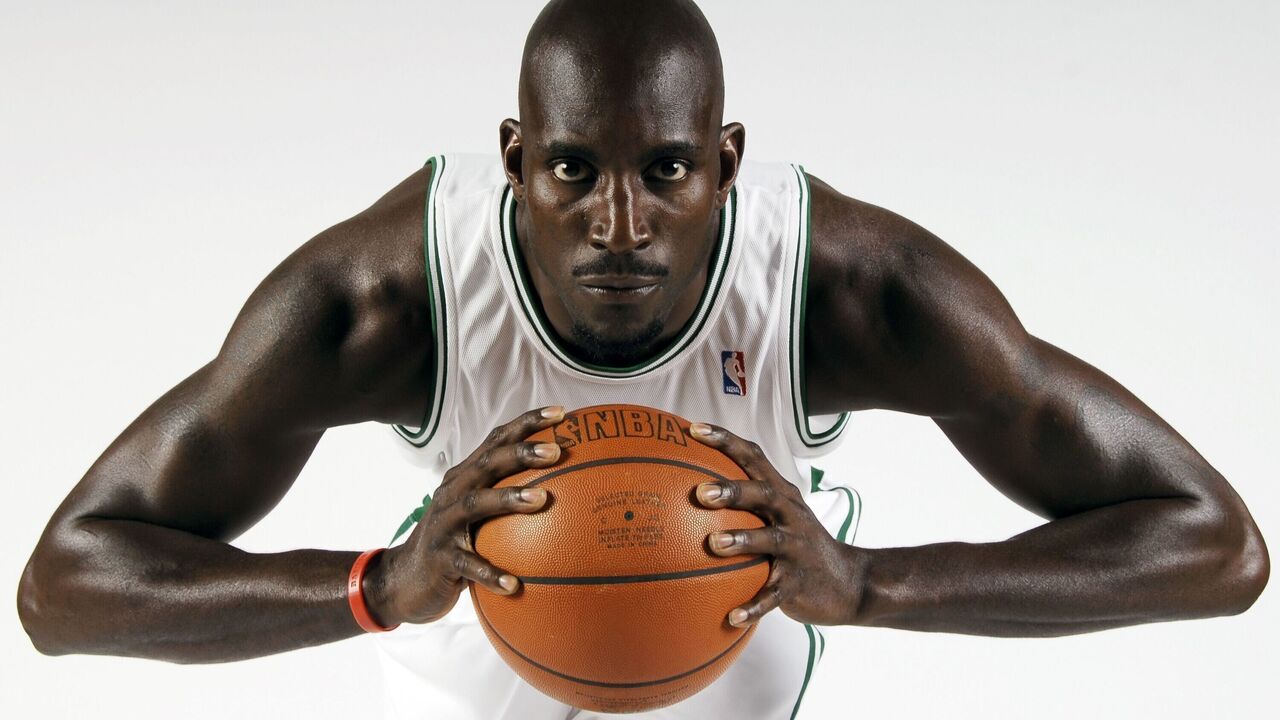
Signature performance: 2004 West semifinals, Game 7
Coming off an MVP season in which he led the Timberwolves to the West's No. 1 seed, Garnett took the franchise to the second round for the first (and still only) time. There, he put forth an all-time carry job to vanquish the Kings in a nail-biting elimination game. He scored 32 of the Wolves' 83 points and added 21 rebounds, two assists, four steals, and five blocks across 46 minutes in a three-point win.
(Honorable mention goes to Garnett's performance in Game 5 of the ensuing West finals, when he put up 30/19/4 to help stave off elimination against the stacked Lakers while playing de facto point guard in the absence of Sam Cassell. Three of the Wolves' starters in that game - Darrick Martin, Trenton Hassell, and Michael Olowokandi - combined for nine points.)
Why he's here: Garnett was as intelligent a player, and as intense a competitor, as the sport has ever seen.
Thanks to some spectacular mismanagement in Minnesota, he toiled away on middling teams for far too long. That's how one of the five best players of his generation wound up winning just two playoff series over the first 12 years of his career; he only made it out of the first round six times when all was said and done. When ranking him against his peers, some might be inclined to ding him for his comparative lack of team accolades. That would be a mistake. Prime Garnett was a two-way force almost without equal in modern basketball.
As one of the NBA's earliest preps-to-pros success stories, Garnett helped open the door for plenty of others to make the jump in the decade that followed. (He was the only high schooler drafted in 1995, but by 2001, high schoolers comprised three of the top four picks.) He was also one of the true unicorns of his day, blending legit guard skills with true center size - though he famously underreported his own height to avoid being pigeonholed as a 7-footer. (Coach Flip Saunders liked to list him at 6-foot-13.) Garnett was a devastating face-up attacker who could handle, pass, and shoot from mid-range. At the other end, his ridiculous agility and omniscient help instincts made him one of the most fearsome and versatile defenders of all time.
When he finally asked out from the team that drafted him, he got to showcase just how much of a winning player he'd always been. His trade to Boston in 2007 kicked off a five-year run of contention for the Celtics that included three conference finals berths, two NBA Finals appearances, and the 2008 championship. That title team, led by Garnett in his DPOY campaign, posted the fourth-best defensive rating in NBA history relative to league average. - Wolfond
6. Kevin Durant
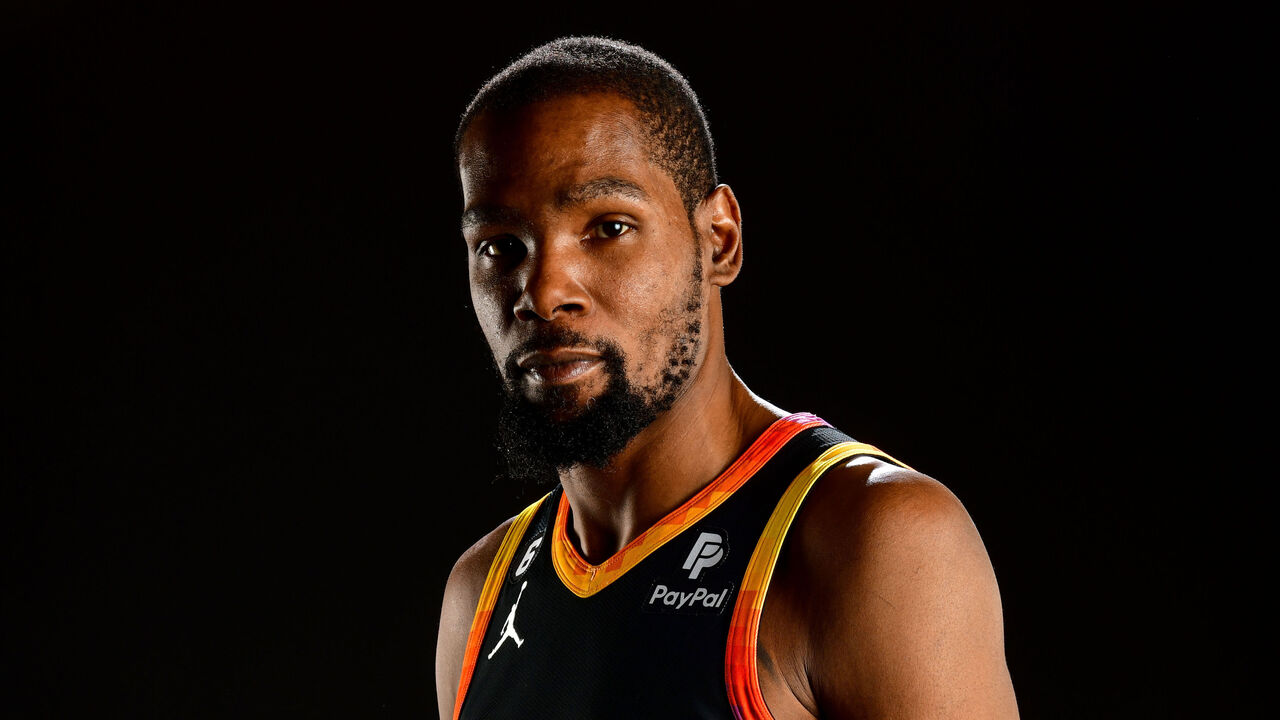
Signature performance: 2021 East semifinals, Game 5
Durant's entire 2013-14 season and Game 3 daggers in the 2017 and 2018 NBA Finals are all worthy options, but his tireless work to drag Brooklyn to victory on the night in question takes the cake.
With Kyrie Irving out of the Nets' lineup and James Harden hobbled by a hamstring injury, Durant dragged his wounded team to the finish line against the eventual champion Bucks. In playing all 48 minutes of the second-round contest, Durant scored 49 points on 16-of-23 shooting, grabbed 17 rebounds, dished out 10 assists, and recorded three steals and two blocks. By the time it was over, with the Nets taking a 3-2 series lead over Milwaukee, all head coach Steve Nash could do was hug Durant for dear life. All of Brooklyn likely felt the same way.
Why he's here: Durant never warmed to the "Slim Reaper" nickname, but it really is the perfect moniker for the near-7-footer.
There have been great scoring big men before, just as there have been great passing bigs. There have been mobile 7-footers, and even some with guard skills. But never before have we seen a player as tall as Durant display all of the skills at his disposal.
KD can handle the ball and attack off the dribble like a smaller scoring guard. For his career, he's shot roughly 54% from 2-point range, 39% from deep, and 89% from the free-throw line. He's one of nine players to have joined the famed 50-40-90 club. Durant once averaged more than six assists per game. He can competently guard anyone outside of the traditional, behemoth-type centers. KD's an excellent help defender and rim-protector, and he's a tremendous defensive option when guarding down in a switching scheme. He's a cross between a big man and a swingman, with 26,892 points to his name and a career scoring average of 27.3 points per game.
There's nothing Durant can't do on a basketball court, which makes him as terrifying as the Grim Reaper himself at just under 6-foot-11.
Some will scoff at Durant's two championships with the Warriors, as he joined Golden State after the team stocked with future Hall of Famers was coming off an NBA-record 73 wins. But it was Durant who made an already great team indestructible, and it was KD who shone brightest in those two NBA Finals victories. At LeBron's peak, Durant may have been the only soul alive who could compete with him. - Casciaro
Friday: Players 5-1